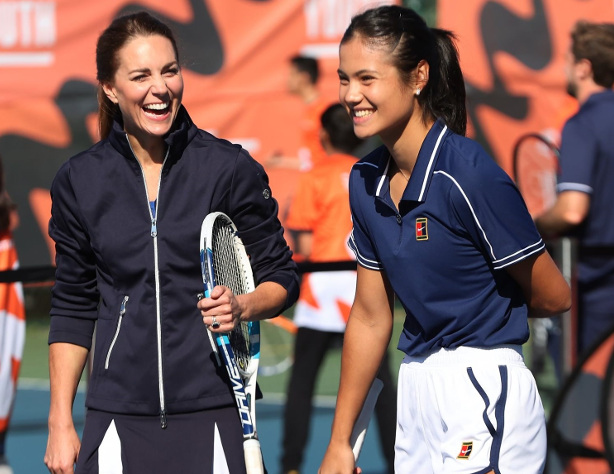The Rise Of Cross-National Artists In Eurovision

Table of Contents
The Increasing Globalization of Music
The internet and the rise of global music streaming services have fundamentally altered the music industry, making international collaboration easier than ever before. This increased connectivity has directly fueled the rise of cross-national artists in Eurovision.
- Easy access to international collaborations through online platforms: Digital audio workstations (DAWs) and online collaboration tools allow artists from different countries to work together seamlessly, regardless of geographical distance. Songwriting, recording, and mixing can all happen remotely.
- Increased exposure to diverse musical styles and influences: Streaming platforms expose artists to a wider range of musical genres and styles from around the world, leading to innovative cross-cultural fusions and inspiring new collaborative projects.
- Breaking down geographical barriers for musicians: The cost and logistical challenges of international collaborations have significantly decreased, enabling artists from smaller countries, previously isolated, to participate in global projects.
- Examples of successful international collaborations outside of Eurovision: The global success of artists like BTS (South Korea), Blackpink (South Korea), and Bad Bunny (Puerto Rico) demonstrate the increasing demand for and acceptance of cross-national musical collaborations. These collaborations often reach millions of listeners worldwide, demonstrating a clear appetite for diverse musical experiences.
The Strategic Advantage of Cross-National Appeal in Eurovision
Employing a diverse team—songwriters, producers, and even performers—offers a significant strategic advantage in the Eurovision Song Contest. This approach increases the likelihood of a song's appeal to a wider audience, leading to enhanced success.
- Reaching a larger voting demographic through diverse linguistic and cultural backgrounds: A song incorporating elements from multiple cultures can resonate with a broader range of voters, potentially increasing a country's chances of winning.
- Increased media attention and international press coverage: A cross-national collaboration often attracts more media attention, generating buzz and potentially boosting a country's profile on the world stage. This increased media presence is a powerful tool in garnering votes.
- Modernizing the image of Eurovision to attract younger audiences: Collaborations with internationally recognized artists can help rejuvenate the image of Eurovision, making it more appealing to younger generations who might be less familiar with the contest's traditional format.
- Examples of Eurovision entries featuring cross-national teams and their success: Many recent Eurovision entries have demonstrated the effectiveness of this strategy, achieving high rankings due to their diverse musical influences and international appeal. Analyzing these successful entries reveals valuable insights into the trends shaping the competition.
The Role of Songwriting Camps in Fostering Cross-National Collaborations
International songwriting camps have become a crucial element in the creation of many Eurovision entries. These events bring together talented individuals from various countries, fostering collaboration and creativity.
- Increase the chances of creating a universally appealing song: By pooling the creative talents of songwriters from different cultural backgrounds, these camps dramatically increase the odds of creating a song with broader appeal.
- Boost creativity through a diverse range of perspectives: The exchange of ideas and perspectives from different musical traditions leads to innovative song structures, melodies, and lyrical themes.
- Examples of successful Eurovision songs created through international songwriting camps: Many top-performing Eurovision entries have emerged from these collaborative efforts, highlighting the power of cross-cultural songwriting.
Challenges and Criticisms of Cross-National Eurovision Entries
Despite the advantages, the rise of cross-national artists in Eurovision also faces criticisms and challenges.
- Concerns about authenticity and the representation of national cultures: Some argue that an over-reliance on international collaborations dilutes the national identity that Eurovision is meant to celebrate. There are worries that the unique cultural flavors of each participating nation might be lost.
- Debates surrounding the definition of "national" identity in a globalized world: In a world of increasing interconnectedness, the very concept of "national" identity is being redefined. This impacts how Eurovision's focus on national representation is perceived and interpreted.
- The potential for homogenization of musical styles: Critics worry that a reliance on internationally successful formulas could lead to a homogenization of musical styles within the Eurovision context, diminishing the diversity of sounds.
- Counterarguments: showcasing diverse musical influences and global collaboration: Proponents argue that cross-national collaborations showcase a fusion of diverse musical influences, enriching the competition and demonstrating the power of global collaboration in the 21st century. It’s a celebration of musical exchange rather than a loss of national identity.
Conclusion
The rise of cross-national artists in Eurovision reflects a broader trend in the globalization of music. While challenges regarding national identity exist, the benefits—increased appeal, media attention, and creative innovation—are undeniable. The future of Eurovision likely involves even more collaborations between artists from different nations, enriching the competition with diverse musical styles and global perspectives.
Call to Action: Want to learn more about the evolving dynamics of international collaboration in the Eurovision Song Contest? Explore further articles and resources on the topic of cross-national artists Eurovision and witness the exciting future of this iconic competition.

Featured Posts
-
 Recall Alert Check Your Medicine Cabinet Dressings And Birth Control Pills Recalled Ontario And Canada
May 14, 2025
Recall Alert Check Your Medicine Cabinet Dressings And Birth Control Pills Recalled Ontario And Canada
May 14, 2025 -
 Jose Mujica Estado De Salud Y Cuidados Paliativos
May 14, 2025
Jose Mujica Estado De Salud Y Cuidados Paliativos
May 14, 2025 -
 Raducanu Splits With Coach After Two Week Trial
May 14, 2025
Raducanu Splits With Coach After Two Week Trial
May 14, 2025 -
 Dokovicev Put Do Vrha Rusenje Federerove Dominacije
May 14, 2025
Dokovicev Put Do Vrha Rusenje Federerove Dominacije
May 14, 2025 -
 Walmart Recall Expands Orvs Oysters And Electric Scooters Recalled Nationwide
May 14, 2025
Walmart Recall Expands Orvs Oysters And Electric Scooters Recalled Nationwide
May 14, 2025
